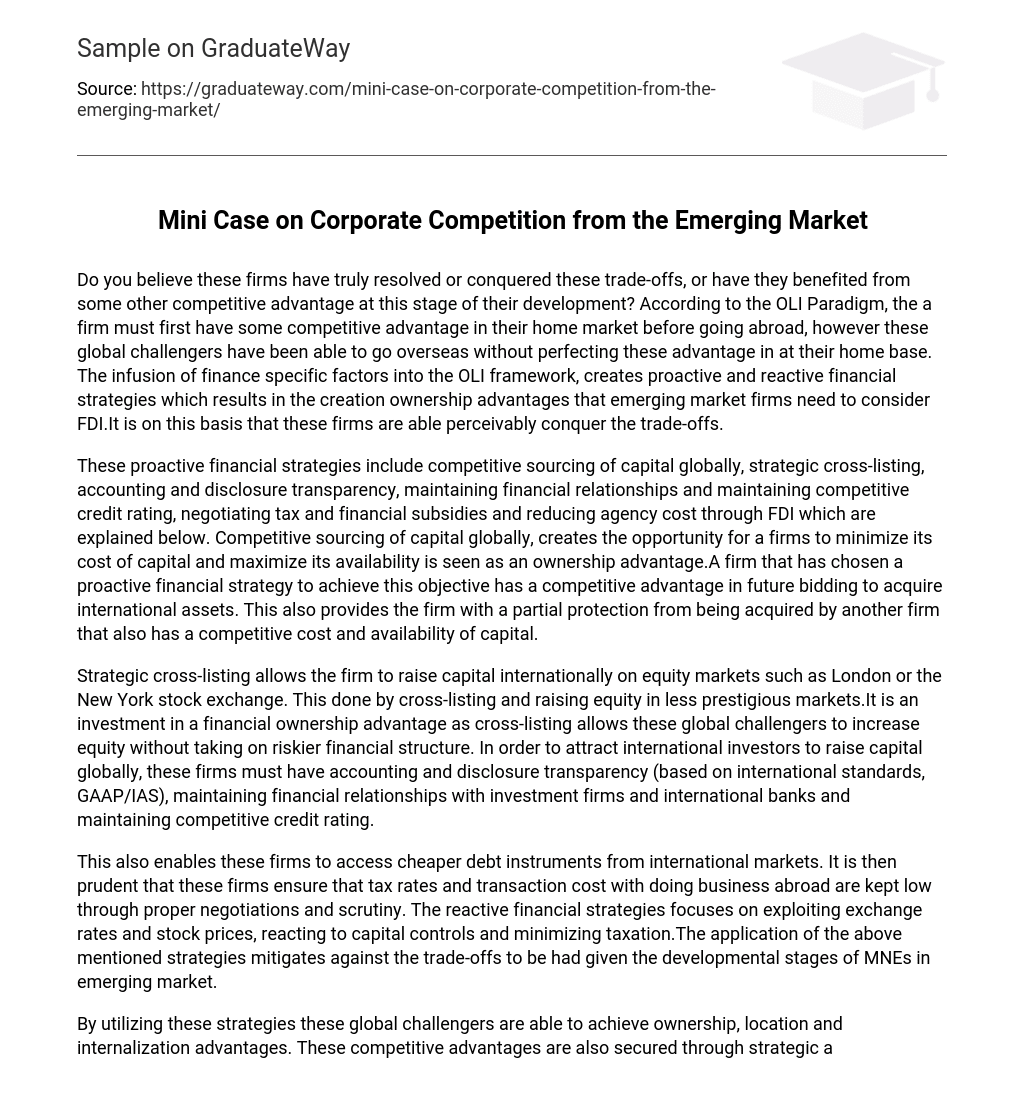Do you believe these firms have truly resolved or conquered these trade-offs, or have they benefited from some other competitive advantage at this stage of their development? According to the OLI Paradigm, the a firm must first have some competitive advantage in their home market before going abroad, however these global challengers have been able to go overseas without perfecting these advantage in at their home base. The infusion of finance specific factors into the OLI framework, creates proactive and reactive financial strategies which results in the creation ownership advantages that emerging market firms need to consider FDI.It is on this basis that these firms are able perceivably conquer the trade-offs.
These proactive financial strategies include competitive sourcing of capital globally, strategic cross-listing, accounting and disclosure transparency, maintaining financial relationships and maintaining competitive credit rating, negotiating tax and financial subsidies and reducing agency cost through FDI which are explained below. Competitive sourcing of capital globally, creates the opportunity for a firms to minimize its cost of capital and maximize its availability is seen as an ownership advantage.A firm that has chosen a proactive financial strategy to achieve this objective has a competitive advantage in future bidding to acquire international assets. This also provides the firm with a partial protection from being acquired by another firm that also has a competitive cost and availability of capital.
Strategic cross-listing allows the firm to raise capital internationally on equity markets such as London or the New York stock exchange. This done by cross-listing and raising equity in less prestigious markets.It is an investment in a financial ownership advantage as cross-listing allows these global challengers to increase equity without taking on riskier financial structure. In order to attract international investors to raise capital globally, these firms must have accounting and disclosure transparency (based on international standards, GAAP/IAS), maintaining financial relationships with investment firms and international banks and maintaining competitive credit rating.
This also enables these firms to access cheaper debt instruments from international markets. It is then prudent that these firms ensure that tax rates and transaction cost with doing business abroad are kept low through proper negotiations and scrutiny. The reactive financial strategies focuses on exploiting exchange rates and stock prices, reacting to capital controls and minimizing taxation.The application of the above mentioned strategies mitigates against the trade-offs to be had given the developmental stages of MNEs in emerging market.
By utilizing these strategies these global challengers are able to achieve ownership, location and internalization advantages. These competitive advantages are also secured through strategic alliances, joint ventures and share swap agreements allowing the firms to gain competitive reach, global partners, access to technology and market without the support of a considerably strong asset base.





